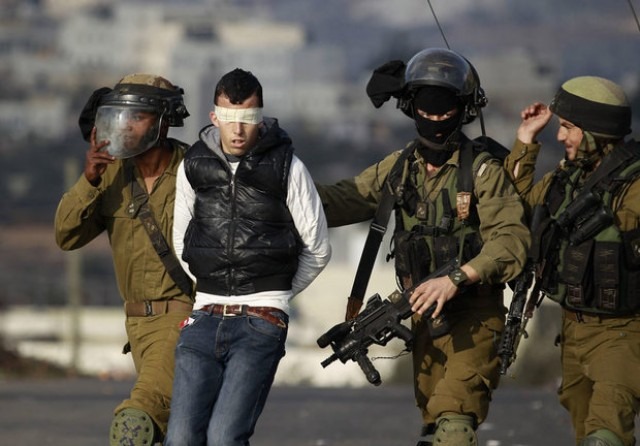Asghar Zarei in an interview with the website of the Strategic Council on Foreign Relations referred to the implementation of the principles of democracy and the constitution in some countries such as Iraq and Lebanon and compared it with the situation in Palestine, emphasizing: Western democratization project in West Asia and Central Asia, is the deception project and is very false that the Americans have pursued under the pretext of securing their long-term interests in order to create political structures in line with interests of the West.
He added: The fact that the democratization project is in the US strategy to ensure the interests of the citizens of the countries is nothing but a deception and a sheer lie. In countries such as Afghanistan, Iraq, and Syria, and some other countries, under the pretext of the project of democratization and establishment of democratic powers, they entered with full military might and with unprecedented force cracked down on their ethnicities and minorities.
The West Asia analyst also referred to the numerous wars in Palestine, crimes of the West and the Zionist regime in it and failure of negotiations between the two sides to achieve the interests of the Palestinian people, saying that Judaization of Holy Quds had been on their agenda for a long time and with the support of Western governments for the Jewish nation-building and state-building project, occupation of those areas was made with an aim of increasing the presence and influence of the Westerners.
West does not even seek democracy in Palestine in slogans
Zarei continued: Basically, the issue of democracy and the rights of Palestinian citizens who owned their lands have been completely forgotten for the right to self-determination, and in all stages of negotiations entitled peace and reconciliation, they refused to present at least one right to the Palestinian people. West does not seek democracy in those areas even in slogans.
The Middle East expert said: Unfortunately, we still see that in the negotiations that are taking place, they are not willing to accept the three inalienable rights of the return of refugees, the transfer of Holy Quds to the Islamic nation, and the release of Palestinian prisoners in Zionist prisons and have defined what is the inalienable right of the Palestinians as their red lines!
Referring to the Supreme Leader’s statement on the need to hold a referendum of all the main inhabitants of Palestine, he described the formation of two governments in the Occupied Territories as a deceptive plan, adding: This plan aims to reduce resistance among the Palestinian people and unfortunately a large number of Arab-Islamic countries somehow welcomed it and came to terms with it.
Zarei emphasized: Those plans were just a deception and a lie, and unfortunately we are witnessing that the Zionist regime today with all its might has severely dominated and oppressed and martyred the Palestinians living in it with its attacks, and refuses to give at least some rights to the Palestinian citizens as the main owners of those lands.
Western support for Israel undermines the rights of Palestinian people
Criticizing the US statement in which it supported the killing of the Zionist regime, the expert on West Asia affairs declared violence against Resistance as an inalienable right of the regime in the Occupied Territories and said: The support, which we have always seen in the UN Security Council, has largely sidelined issues of democracy and the right of the Palestinian people to self-determination.
He continued: What is emphasized in Article 2 of Charter 1 of the UN Charter as the right to self-determination and non-interference in the internal affairs of countries, is not raised at all in relation to the issue of Palestine and is generally ignored.
Emphasizing the need to pay attention to the right of the Palestinian people to self-determination through the ballot box and the referendum, Zarei said: All the evidence shows that the Zionist regime and its supporters do not believe in this issue at all, because all Palestinian refugees should return to their homeland and be given the right to vote and to self-determination, and the immigrants who have been brought to those areas from all over the world under the pretext of Judaization of Islamic lands should return to their lands.
Structural discrimination and crisis of legitimacy in the structure of the fake Zionist regime
He added: We are now witnessing structural discrimination and a crisis of legitimacy in the structure of the fake Zionist regime, and how can such a structure raise the slogan of democracy, law, and civil rights!
Zarei explained: The structure of social differentiation in the social body of the Zionist regime is a serious issue according to which the first, second, and third-class citizens can be distinguished. Third-class citizens are ostensibly the Jews who have become Jews and migrated to those areas from African countries such as Ethiopia and are highly discriminated in the regime’s conflicting structure and racial discrimination.
The expert on West Asia affairs added: The first-class citizens are generally those who in the years before 1948, were able to migrate to those areas through terrorist groups and take possession of it with false promises.
He stressed: With such issues, it is not natural to allow a principled strategy for self-determination for the Palestinian people to be raised and become operational. In such an atmosphere, the only way to destroy this fake and usurping and aggressive structure is the Resistance, just as today we are witnessing the breaking of the fragile structures of the fake Zionist regime.










0 Comments